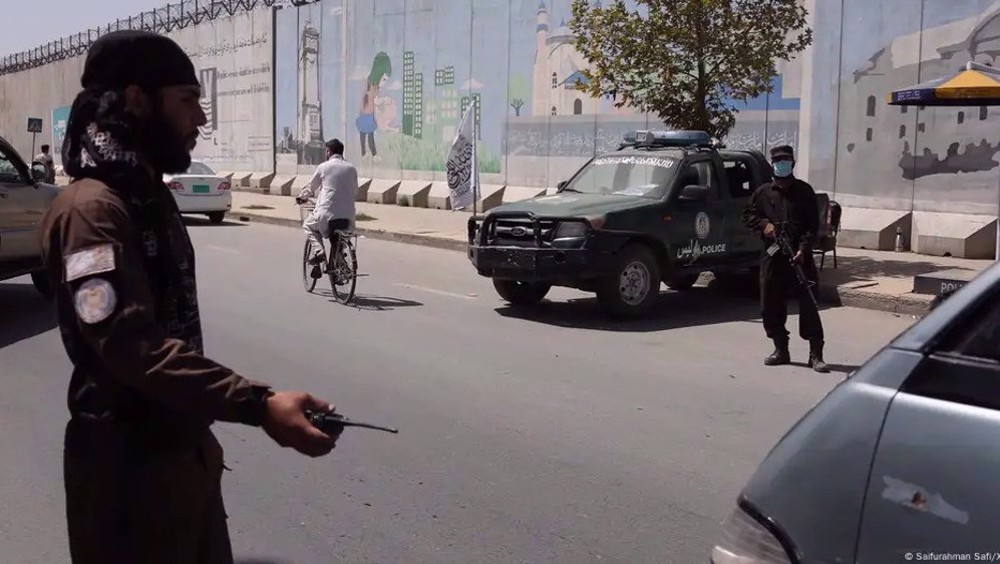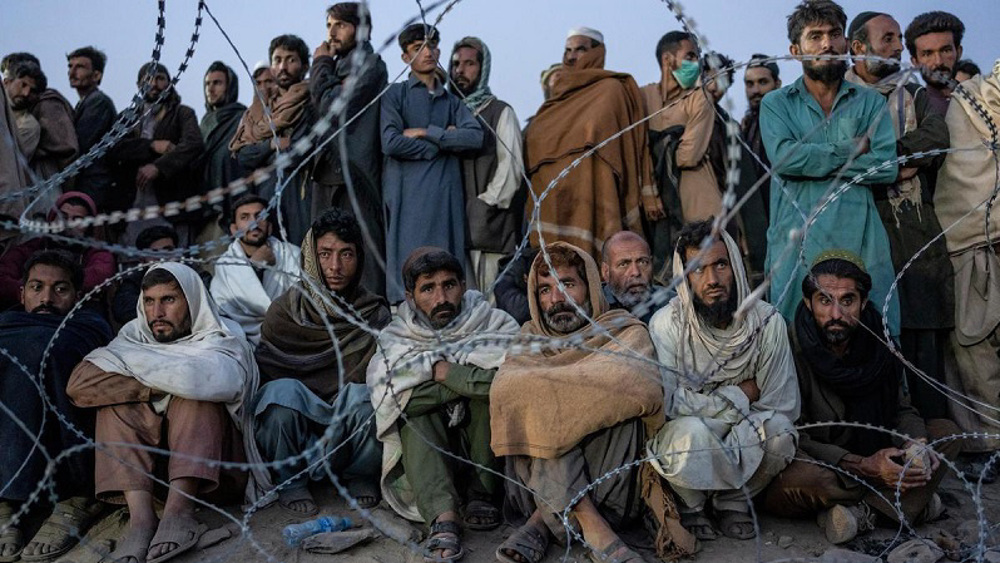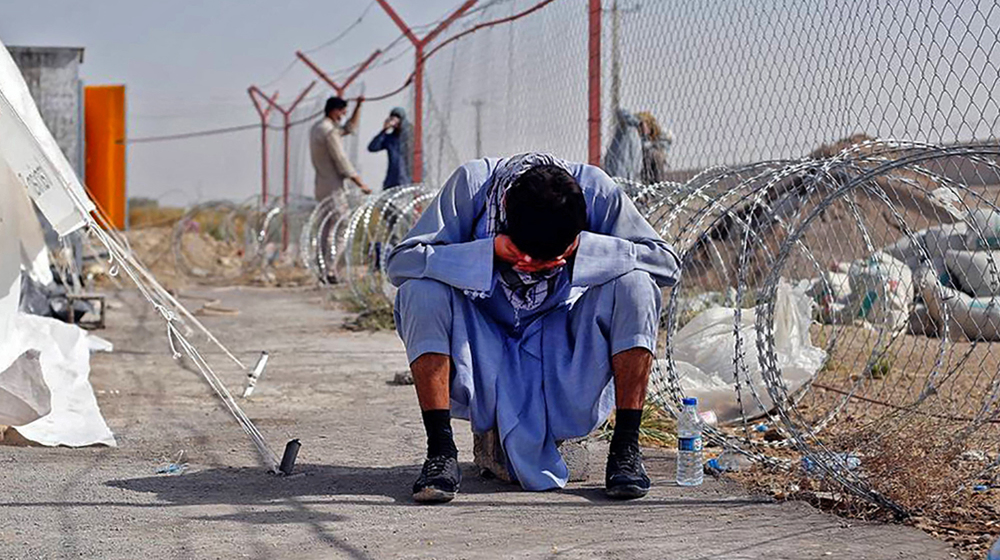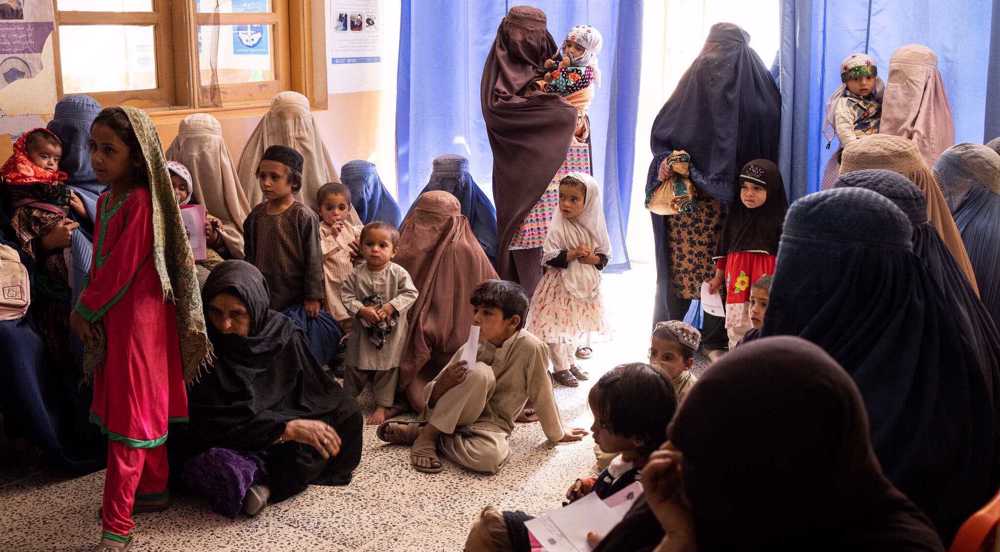Taliban leaders call for international aid as refugee exodus looms
Taliban leaders have once more appealed to the international community to extend aid to Afghanistan amid a worsening economic crisis that could spark a refugee exodus.
Deputy Foreign Minister, Sher Mohammad Abbas Stanikzai, said on Saturday that the Kabul government needed billions of dollars of central bank reserves frozen by the United States to combat a worsening humanitarian situation.
Speaking at a special meeting to mark the United Nation's international migrants day, which was attended by representatives of the International Organization for Migration (IOM) and UNHCR, the UN refugee organization, Stanikzai said that ordinary Afghans were bearing the brunt of the crisis, not the ruling Taliban leaders, who seized power four months ago.
"The impact of the frozen funds is on the common people and not Taliban authorities," he said, making the case for the urgency of international aid.
The Taliban official warned of an imminent mass migration if the situation remained unresolved.
"If the political and economic situation doesn't change, there will be more migration," Stanikzai warned.
Stanekzai urged UN aid agencies to apply pressure for the release of nearly $10 billion worth of assets frozen by the US government.
He also called on Afghan refugees living overseas to return to the country. "We invite and encourage everyone to return to Afghanistan, even our political opponents."
Meanwhile, Taliban Foreign Minister Amir Khan Muttaqi met with representatives from the International Committee of the Red Cross on Saturday in the Pakistani capital, Islamabad.
Muttaqi said the Taliban welcomed international humanitarian organizations and gave assurances that they would be allowed to work in Afghanistan unimpeded.
Separately, Kabul said it will resume issuing passports.
Alam Gul Haqqani, the head of the passport department in the interior ministry, told reporters that Afghan authorities will start issuing passports from Sunday.
Previously in October, authorities had reopened the passport office in Kabul which was closed shortly after the Taliban returned to power.
A flood of passport requests had reportedly caused the biometric equipment there to break down, forcing authorities to stop work.
Haqqani said, "All the technical issues have now been resolved," adding that new requests will be accepted from January 10.
"We are happy now ... we can get our passports and go to Pakistan," said an Afghan man introducing himself to the media as Jamshid.
He said he had wanted to visit neighboring Pakistan to seek medical treatment for his ailing mother. "My mother has some health issues and we needed to go to Pakistan a long time ago, but we could not because the passport department was closed," Jamshid said.
Over the past four decades, more than six million Afghans have fled the country to escape war and economic crises.
Many of these refugees are living in neighboring Iran and Pakistan.
The international community does not recognize the Taliban-led government in Afghanistan.
Iran FM: EU’s blacklisting of IRGC a ‘major strategic mistake’
EU blacklists IRGC in legally flawed move irrespective of consequences
VIDEO | Press TV's news headlines
VIDEO | Afghanistan opens first specialized cancer hospital
Trump officials held secret talks with Canadian separatist group: Report
VIDEO | Pakistan’s legal community condemns UNHRC anti-Iran resolution
Resistance groups announce volunteer recruitment to defend Iran
Indians rally to condemn Trump's threats against Ayatollah Khamenei














 This makes it easy to access the Press TV website
This makes it easy to access the Press TV website